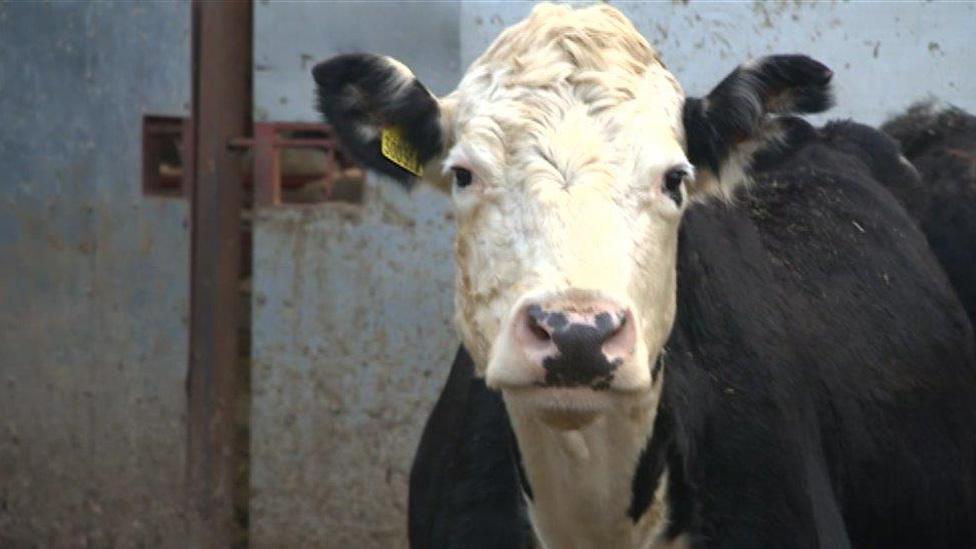Panorama: Welsh farmers' opposing views on Brexit
- Published
- comments
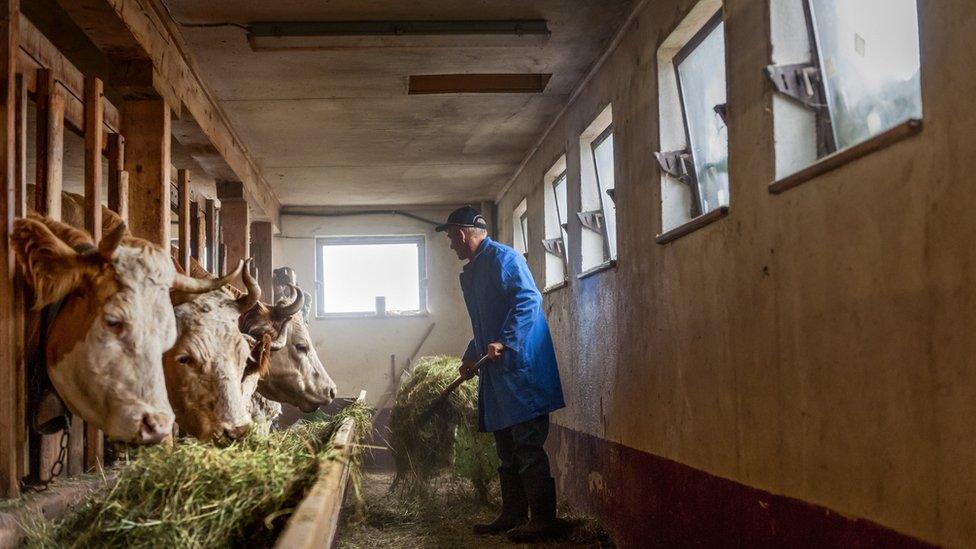
As Britain faces the biggest shake up in food and farming since World War Two, some farmers fear a bad Brexit deal could drive them out of business.
Some are concerned leaving the EU could have a "massive effect" on Britain's ability to produce food.
But others see it as a "once-in-a-lifetime opportunity" to change the industry for the better.
Two Welsh farmers told BBC's Panorama why they hold opposing views about their prospects outside the EU.
"I think one of the main reasons I voted to leave the EU is because I'm a young farmer and I'm looking to the future," said Jacob Anthony.
The 24-year-old, from Bridgend, who runs a beef and lamb farm, works alongside his father and grandfather.
"I think a lot of us in the industry were not happy with the way the sector was going and I thought it was a once-in-a-lifetime opportunity for realistic change," he added.
Farmers Jacob Anthony and John Davies are split on their views about life after Brexit
Mr Anthony insists Europe-wide decisions about farming just do not work.
"At the moment, there's one agricultural policy that's meant to fit all 28 nations that are in the EU," he said.
"That agricultural policy was meant to fit countries farming reindeer in the Arctic Circle all the way down to farmers in the Mediterranean farming olives."
He believes British people are "subsidising foreign counties" and improving their farming to help them "become competitors".
Mr Anthony is also keen to send his livestock to new markets, such as China.
"I feel that, by leaving the EU now, it gives us a chance to have a head start - negotiate other trade links with emerging markets.
"Let's infiltrate them now and negotiate with them new trade deals that we haven't been able to whilst we've been a part of the European Union."
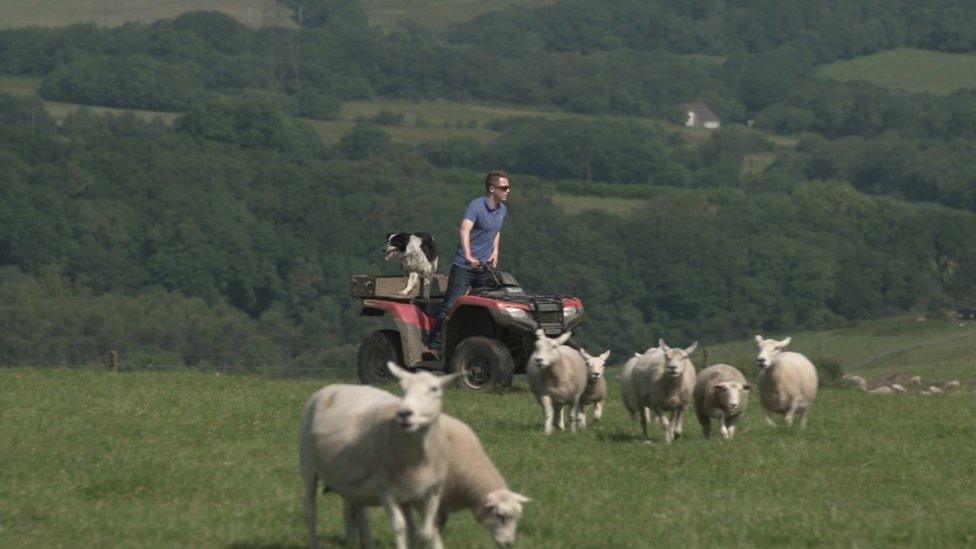
Jacob Anthony farms sheep and cows in Bridgend
But it is a different story in Merthyr Cynog, near Brecon.
John Davies, runs a family business stretching back more than a century and he is less optimistic about life outside the EU.
"I have a responsibility to the next generation. We didn't inherit this from the last generation, we are just caretakers for the next," he said.
Mr Davies works alongside his wife, two children and his 87-year-old father, who all help with the farm's hundreds of ewes.
He voted Remain and sees a great deal of peril for farmers in the event of a careless or ill-conceived Brexit deal.
"Brexit could have a massive effect on our food producing ability in this nation, that's a key strategic decision to make," he said.
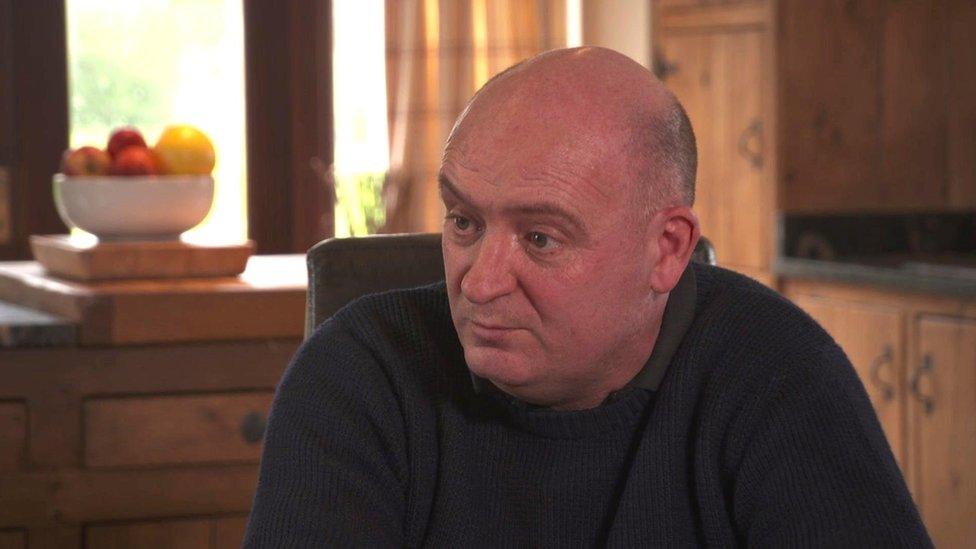
John Davies is deputy president of National Farmers Union Cymru
He said continued subsidies were vital, particularly for the survival of hill farming.
Environment Secretary Michael Gove has pledged to maintain current subsidy levels until at least 2022 but Mr Davies has other concerns.
"Trade is so important to sheep farmers because nearly 40% of our lambs are exported - and of those, nearly all - 95% - goes to the EU.
"We need unfettered and free access to the European Market for what we produce.
"We need those standards to be equivalent for any products coming in."
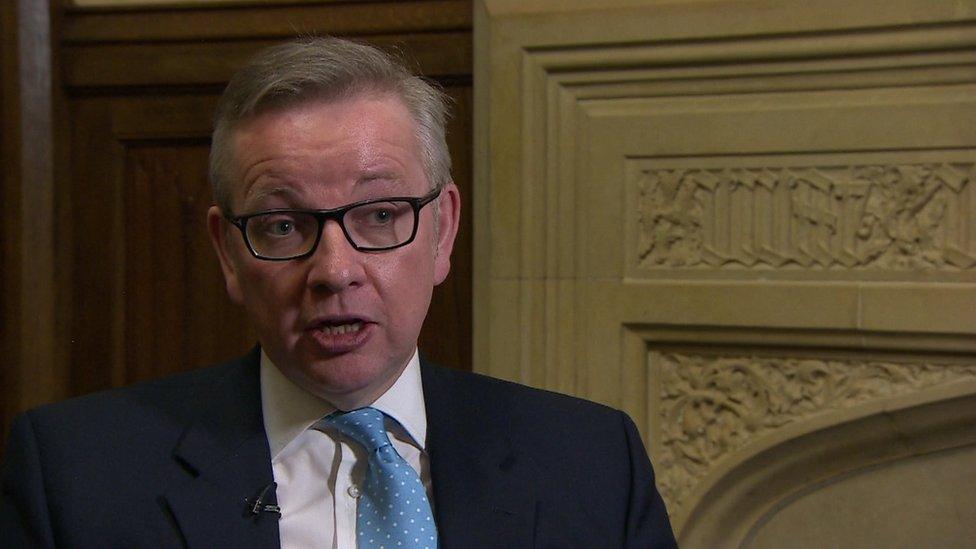
Brexit offers a "historic" chance to reshape agricultural policy for farmers and consumers, according to Michael Gove
He fears, without those standards, cheap, mass-produced beef from international competitors could drive him to the wall.
"I'm really scared of imports, produced to completely different standards, hormones, you know, feed-lot beef etc, you know, we're based on pasture, green pleasant land, high environmental standards, [we're] really proud of that," he said.
But Mr Davies knows pride alone cannot support farming in Wales. He thinks the industry needs an agricultural policy which echoes the wartime push to grow the food we eat.
With the European Union ingrained in British food and farming, Brexit could change the face of the British countryside and the fate of British farmers.
The jury is still out as to how.
Watch BBC Panorama - Britain's Food & Farming: The Brexit Effect on Monday 10 July on BBC1 at 20:30 BST and afterwards on BBC iPlayer.
- Published24 March 2017
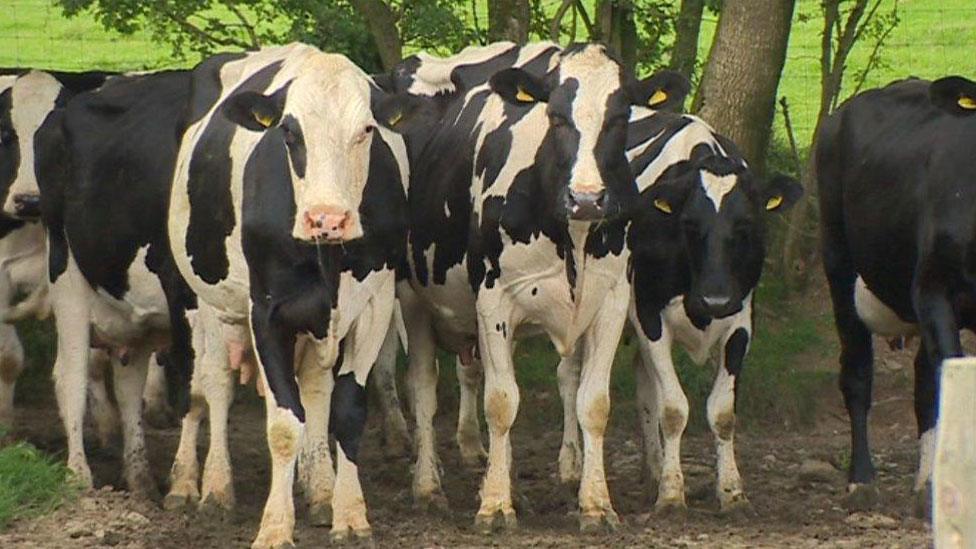
- Published2 February 2017
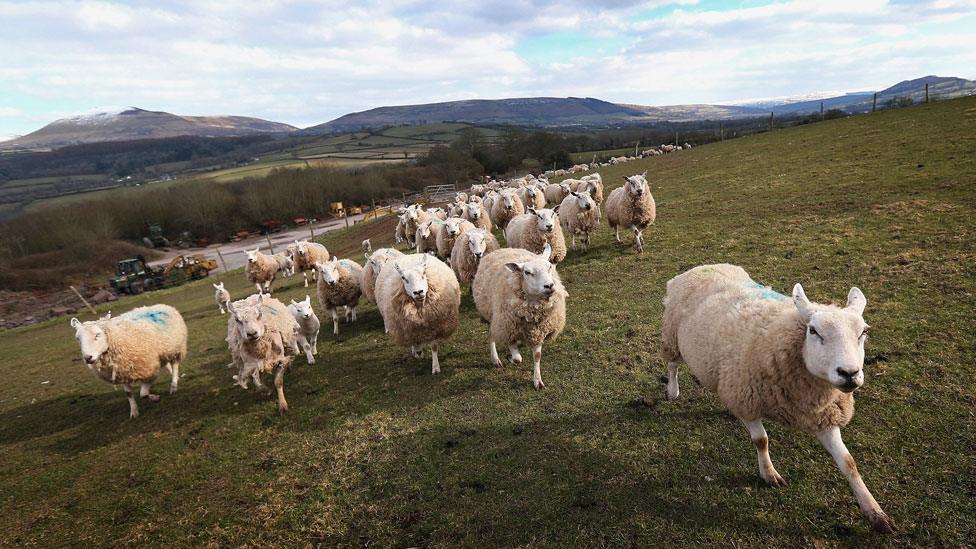
- Published8 February 2017
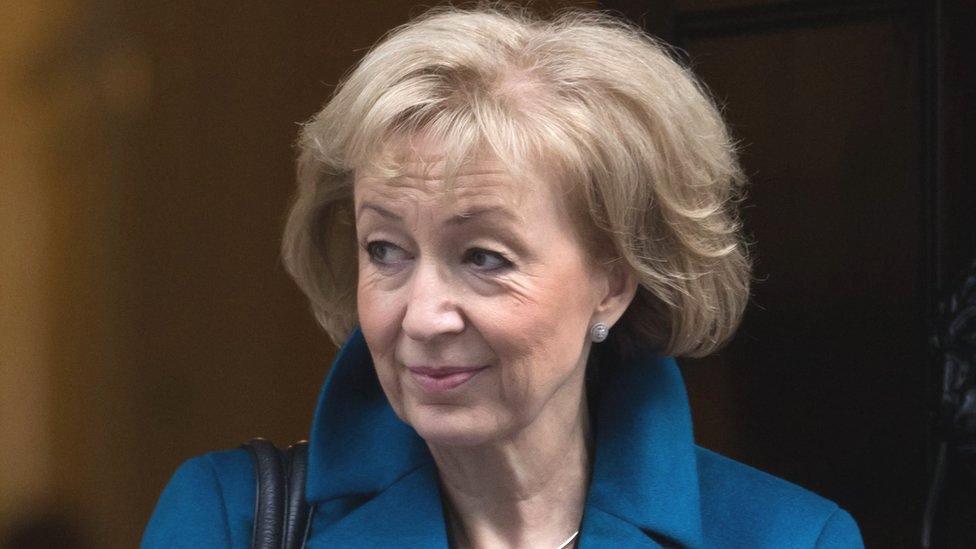
- Published17 May 2017
